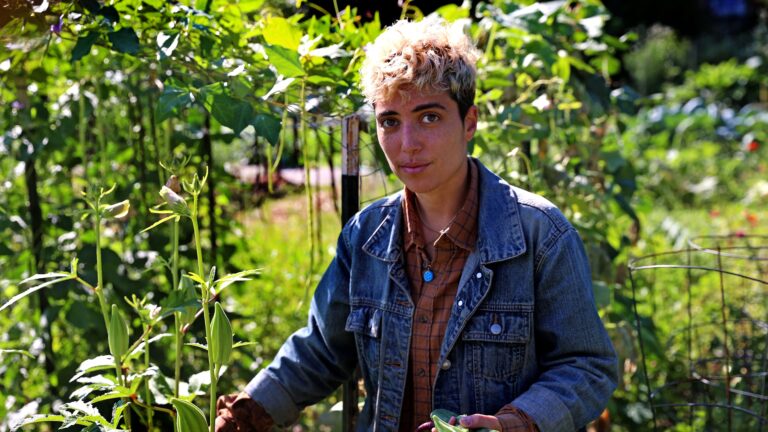Gardening
Seed saving can be a path to restoring a relationship with growing broken by colonization and commerce.
Every meal began with a seed.
But over time, familiar flavors can be lost: left behind after emigration or clocked up by copyright restriction. Produce of regional cuisines from around the world may not turn up in a chain grocery store. And those limitations can not only constrain plant heritage, but also cultural practice. In Massachusetts, community seed-saving practices are helping to put those seeds back in the garden, and those tastes back on the table, as growers reconnect with once-lost traditions.
Anandavalli Thiagarajan of Somerville regularly hosts her mother-in-law, Padmaja Venkatraman, who is originally from Thrissur, Kerala State, India, and is based in Mumbai. And while Venkatraman leaves her home garden behind each time, she has found that through the practice of saving seeds, she is able to grow ingredients crucial to the Indian dishes she looks forward to preparing for her young grandson, as well as for the family’s Ayurvedic medicinal practices. She gardens at Somerville Community Growing Center, where she volunteers during her visits.
“She wants to connect and make sure that [my son] understands our food,” said Thiagarajan, who said food is a means of communicating love. “His favorite food is pizza. So one day, he might try and taste South Indian food as well.”
With help from local Indian markets, Venkatraman has cultivated essentials from seed, including tomatoes, chili peppers, coriander, turmeric, bitter pumpkin, okra, tomato, and cucumbers (including orange Indian varieties) among her current crops, as well as holy basil or tulsi, which is used in worship.
“Seeds are the stories of us — where we’ve gone, where we’ve been on this planet, who we are, how we’ve traveled, how our foodways have evolved, how we’ve exchanged with one another, how we’ve appropriated or exploited one another,” said Bill Braun, cofounder and executive director of the Freed Seed Federation in Westport. The nonprofit hosts a seed-saving school and is at work developing a seed bank. “All those stories are embedded in seeds,” Braun said.
The practice of seed saving can be a path to restoring a relationship with growing that has been broken by colonization and commerce. Lea Zeise, an Oneida woman Native American member of the Wolf clan who originated in Talu’kowanhné in the Oneida Nation of Wisconsin, is cofounder of the volunteer network Braiding the Sacred, which works to preserve and perpetuate corn varieties considered sacred and grown by indigenous peoples.
“We have a relationship with those seeds where we take care of them and they take care of us through an agreement that we made with them a long time ago,” Zeise said. “They agreed to sacrifice themselves to feed us in exchange for us taking care of them.”
Through Braiding the Sacred, the volunteer network forms relationships with tribal groups where the corn originated, Zeise said. The practice of returning seed is done by welcoming it home through ceremony and then planting and caring for it through harvest following their respective tribal protocols.
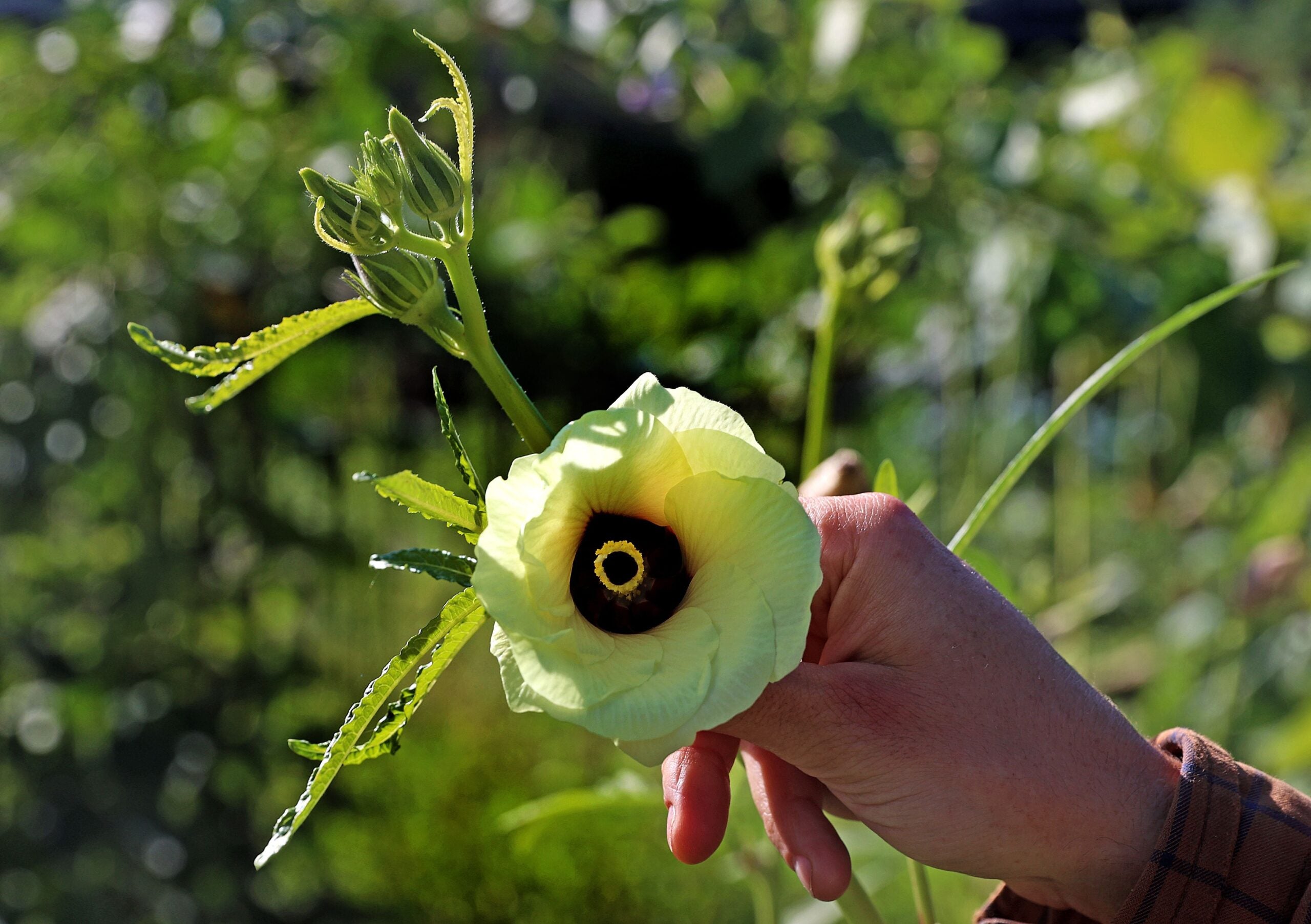
Commercialization and copyright have severed native corn from its homes, Zeise said. Through Braiding the Sacred’s efforts, indigenous people reconnect with the plant.
“If you are driving through a cornfield in the Midwest, that seed was never touched by a human hand,” she said. “Every step of that process was mechanical, and so that corn never had a chance to feel that relationship with the people. There’s no love in that food.”
At the end of the season, participating growers thank the corn for taking care of them. The total process, said Zeise, makes for a profound homecoming.
And through seed saving, that homecoming can be possible, even following devastation.
Amid the early Zoom-moderated days of the pandemic, Annabel Rabiyah, whose family immigrated from Iraq, connected with an Iraqi man who had just returned from visiting the country. He was heartbroken upon seeing the ravaged state of the Iraqi food system, once considered the birthplace of agriculture. Iraq’s seed bank, in which staple seeds were preserved in case of annihilation, had itself been destroyed in 2003 in a US military raid.
He salvaged seeds from local markets, and collaborating with Rabiyah, the two founded the Iraqi Seed Collective, a network dedicated to the preservation of Iraqi heirloom varieties.
And some of those lost flavors have begun to reappear on the table.
Rabiyah, who manages engagement for community gardens managed by the Trustees of Reservations, said heritage plants at local markets have moved neighbors to tears when they see crops available locally that they thought had been lost.
“It’s like seeing a long-lost relative,” they said.
Rabiyah stunned their family members, presenting them with eggplant specific to Iraqi recipes (drier and more easily fried than those cultivated here) and tomatoes, not just any, but the ones used in a specific, traditional salad.
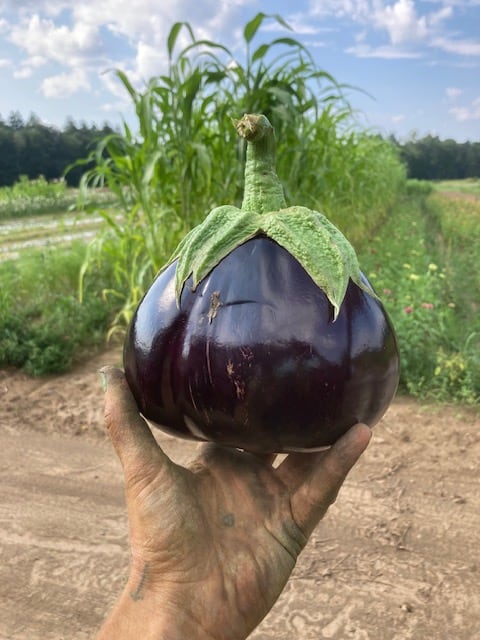
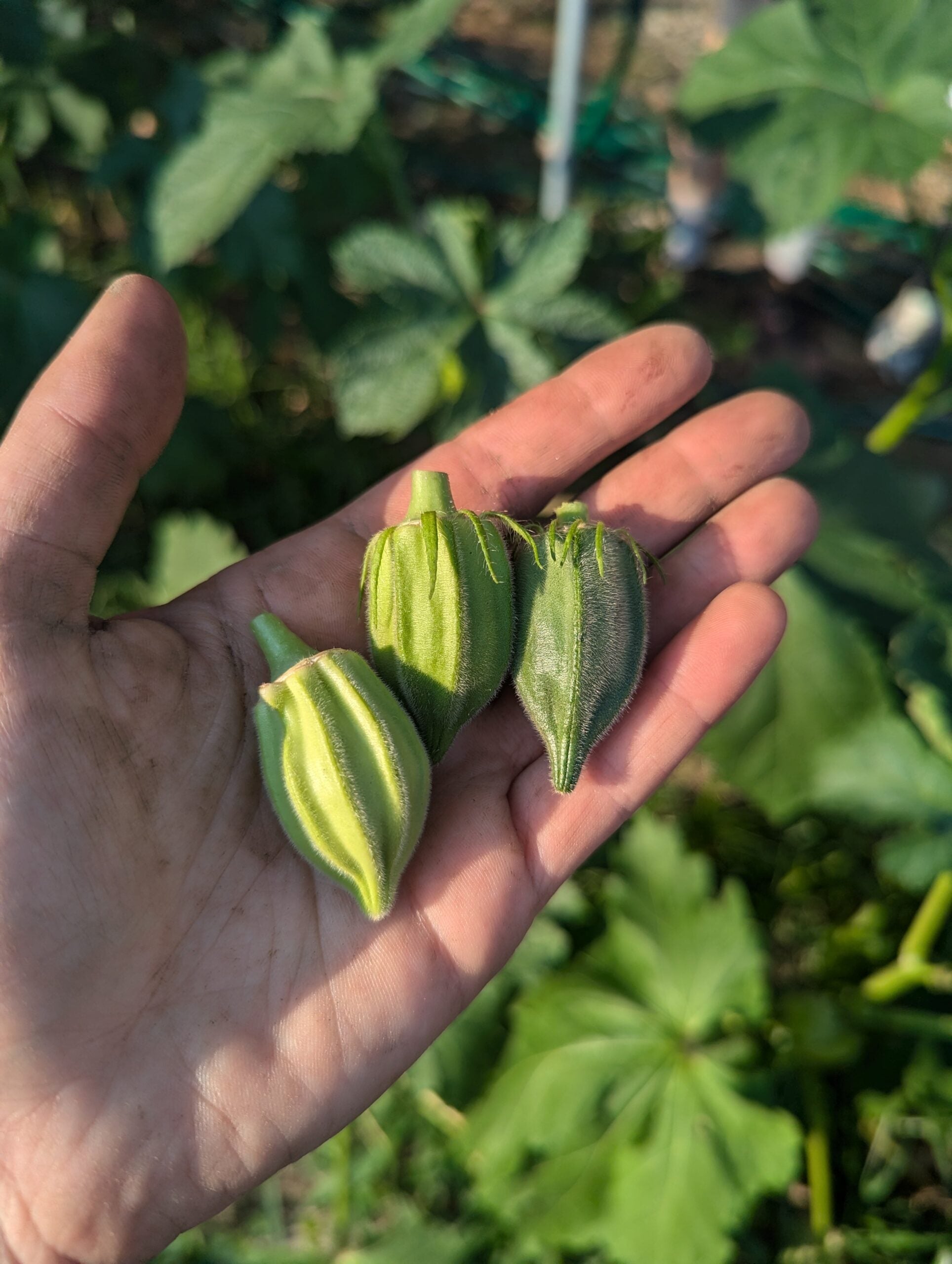
In Boston’s community gardens, neighbors share seeds sometimes carried back from visits to home countries, and local farms help facilitate growth, visibility, and exchange. (Online, Truelove Seeds, a Pennsylvania-based company, collaborates with local seed keepers to make culturally relevant heirloom seed varieties commercially available.)
By crops appearing in local farmer’s markets, buyers become aware of their availability. At Mattapan’s Urban Farming Institute, assistant farm manager Matt Ellison said the institute hosts greenhouse space for those who lack growing room. UFI collaborated with growers to host a crop-tasting meetup. Its roster of saved-seed-grown plants include Trinidad pimento, Iraqi melons, and field peas.
Molokhia, a plant in the jute family that grows in many regions around the world (and is referred to by many names depending on its associated language), has become prized in Boston among seed-savers. It grows well in Vietnam, Haiti (where a stew made from it is called lalo), West Africa, and Arab regions.
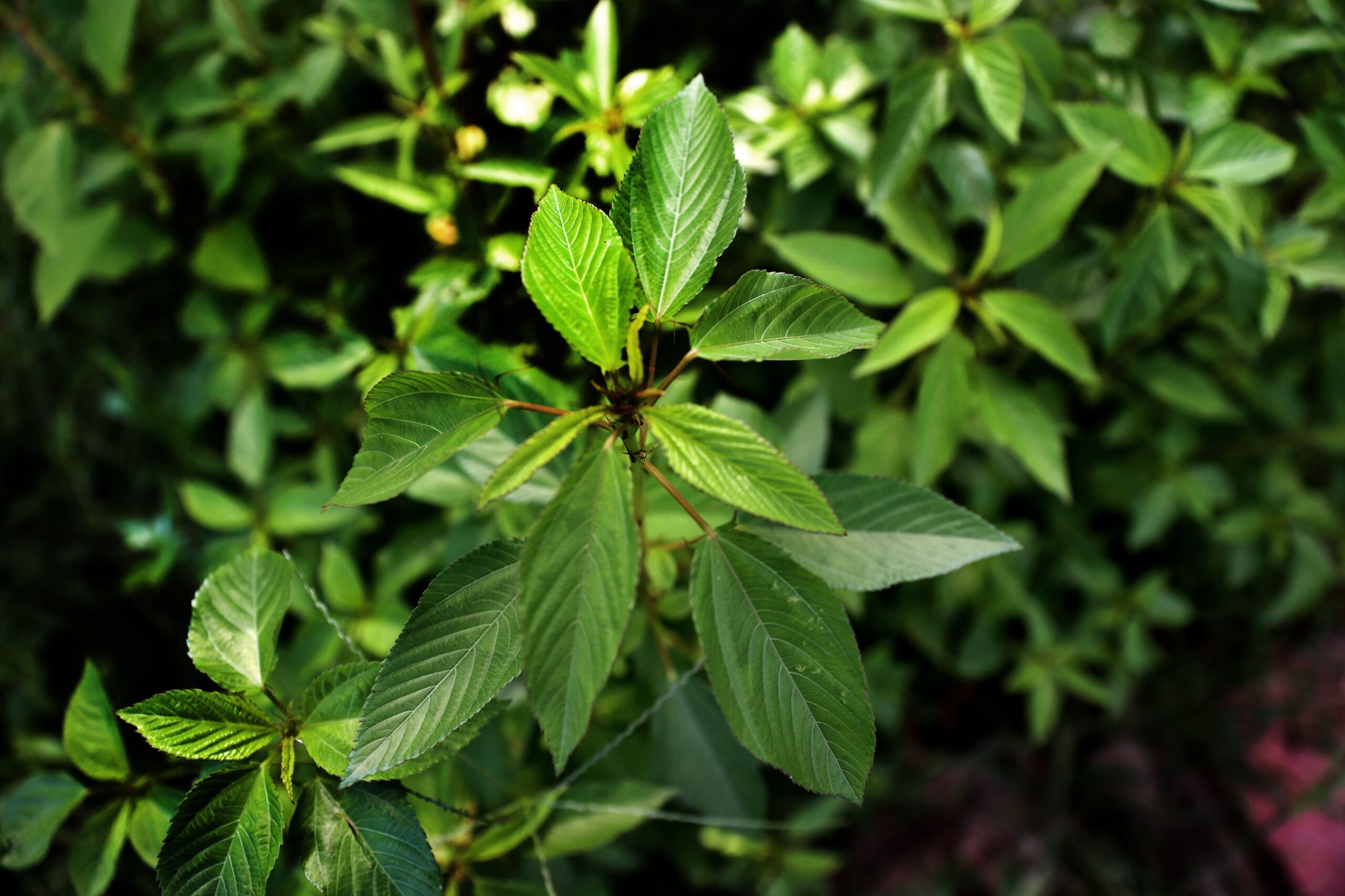
Ellison said neighbors share seeds they bring back from the Caribbean, starting their own and sharing with the farm. He said neighbors frequently stop to talk and share notes on what they’re growing.
“It’s a staple green,” said Rabiyah. “People are sort of fanatical about it. And until recently, it’s not something that was very widely available.”
Shocked by pandemic-era price hikes on bulk catalog seed, Sayed Mohamed-Nour, executive director of the Nubian United Benevolent International Association and a community-based grower, began saving seeds. His customers travel long distances to get the green at his market. Mohammed-Nour, who grew up in a rural farming community north of Sudan, can hardly grow it fast enough to meet the demand — so much so that he cannot dedicate spare crops for seed saving.
Over the years, Mohamed-Nour has worked to introduce youth gardeners to community sites across the Boston area to connect them with food and Nubian cultural heritage.
“When I see [seeds] starting from seedling, when it grows up just to come out from the soil, it gives me power,” he said.
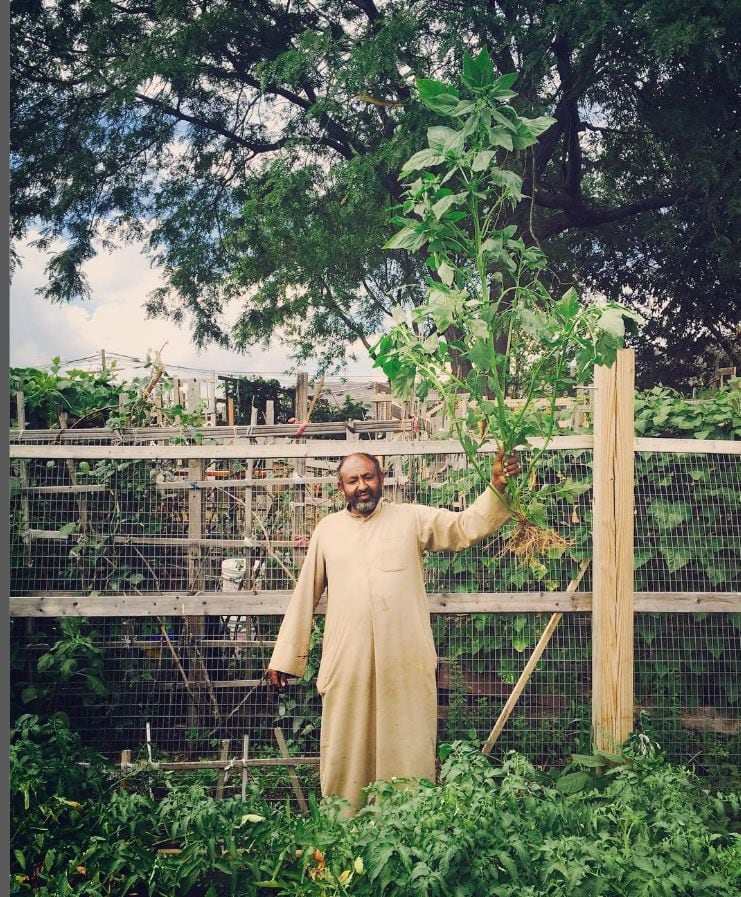
At his Westport farm, Braun recalled a seed school student with Caribbean roots who pulled okra seeds from his pocket.
“This kind of okra is not commercially available, and here he is for 50 years quietly adapting this okra to the north,” he said. “Here’s this okra that would have slipped into the dustbin of history were it not for him showing up in his late 80s to the seed school.”
The farm dubbed the home-grown seeds “Ronnie’s Red Okra,” a rare and homegrown alternative to the limited commercial types.
Saving seeds can be complicated even without difficult sourcing. Will a seed thrive in a different climate, even if it makes the journey? To prevent cross-pollination, which can result in unexpected variations, some seed-savers practice isolation methods, such as placing mesh bags over flowers and spacing plants far apart.
But Rabiyah encouraged the curious not to let that get in the way of trying.
“Maybe a healthy mixing up is actually good for the plants,” they said. “Now they’re in diaspora … It’s like, part of the evolution of how crops are. I have been thinking about that more: Why are we so worried about being so isolated all the time? We can let it be a little mixed up.”
Lindsay Crudele can be reached at [email protected].
